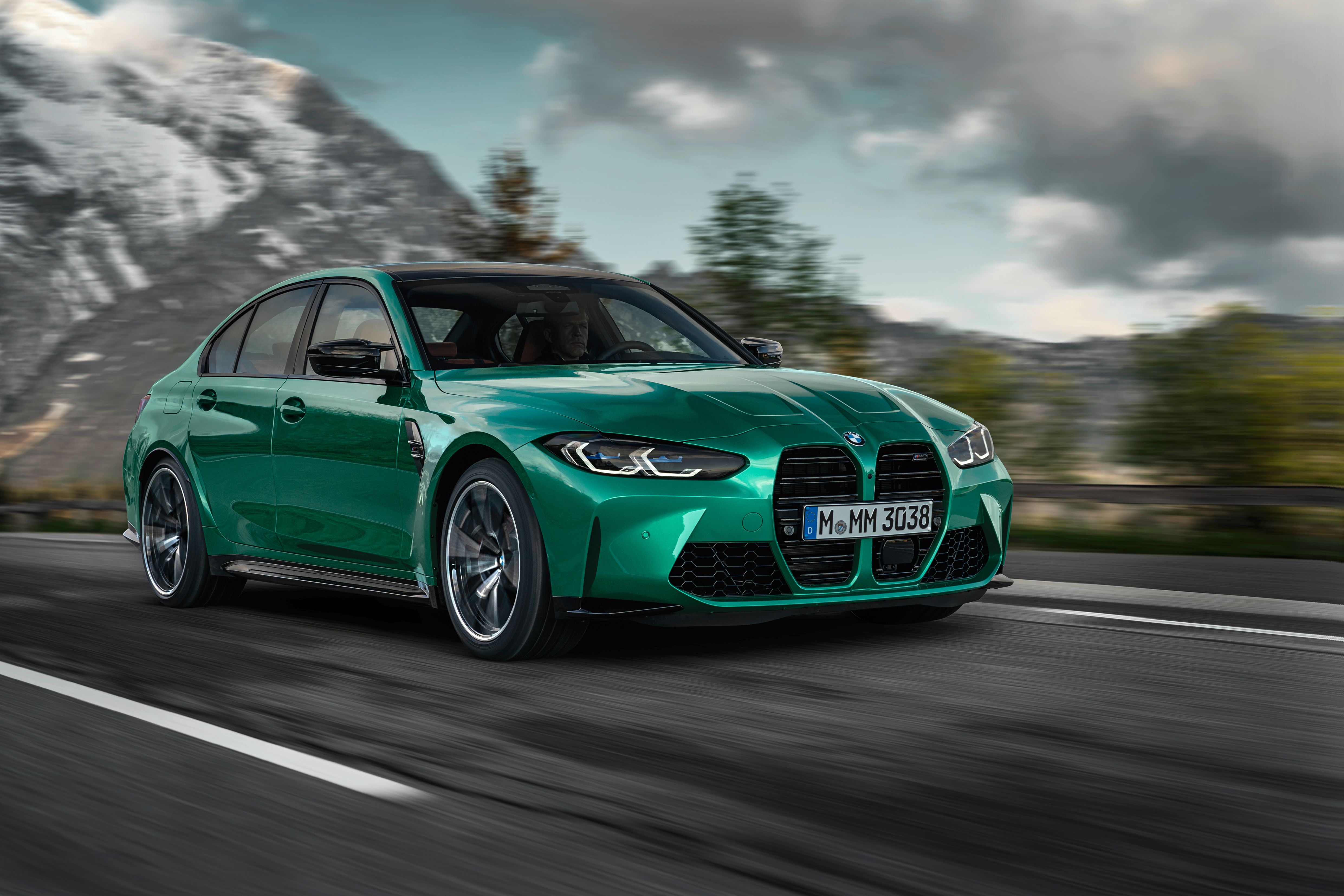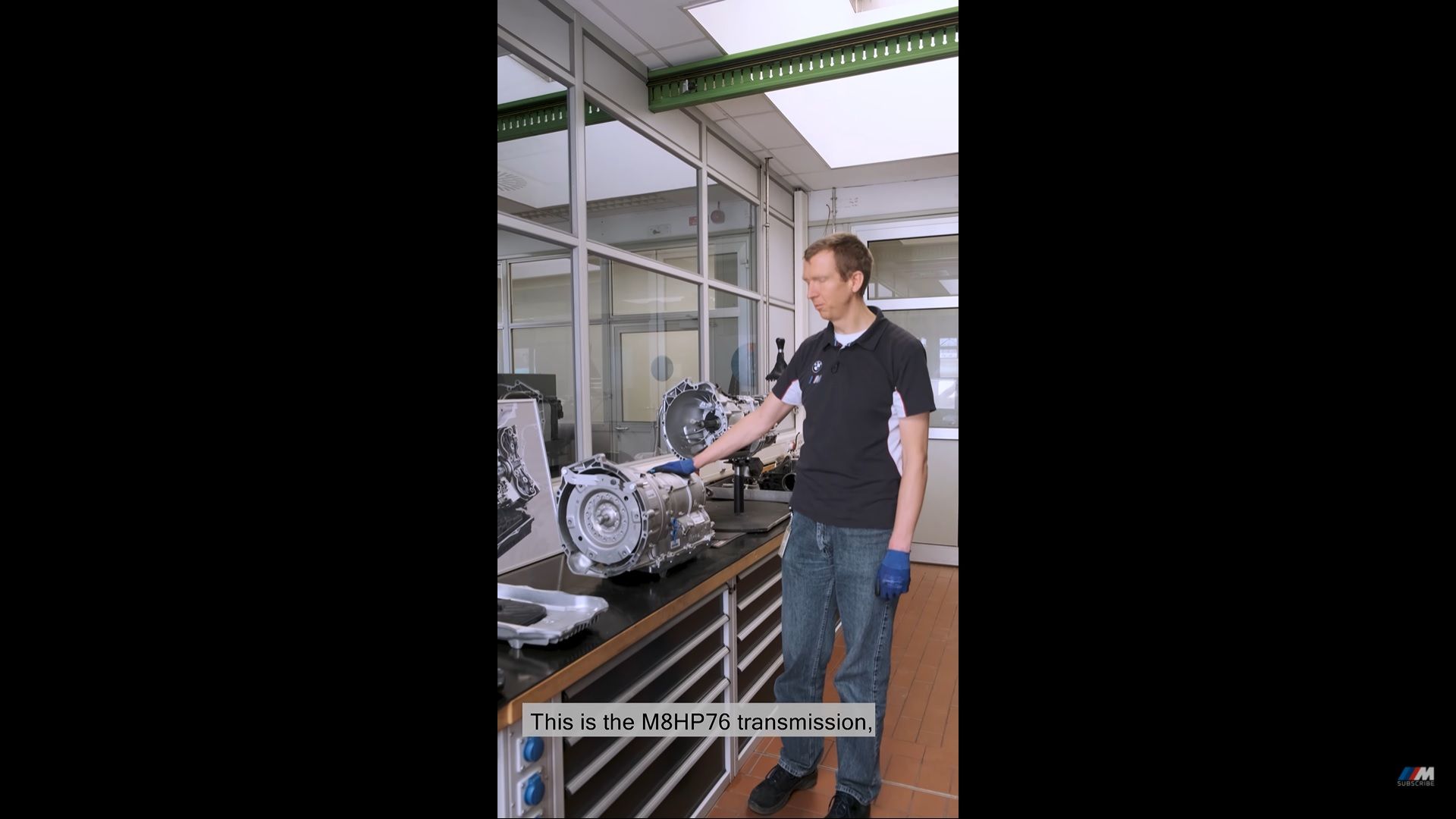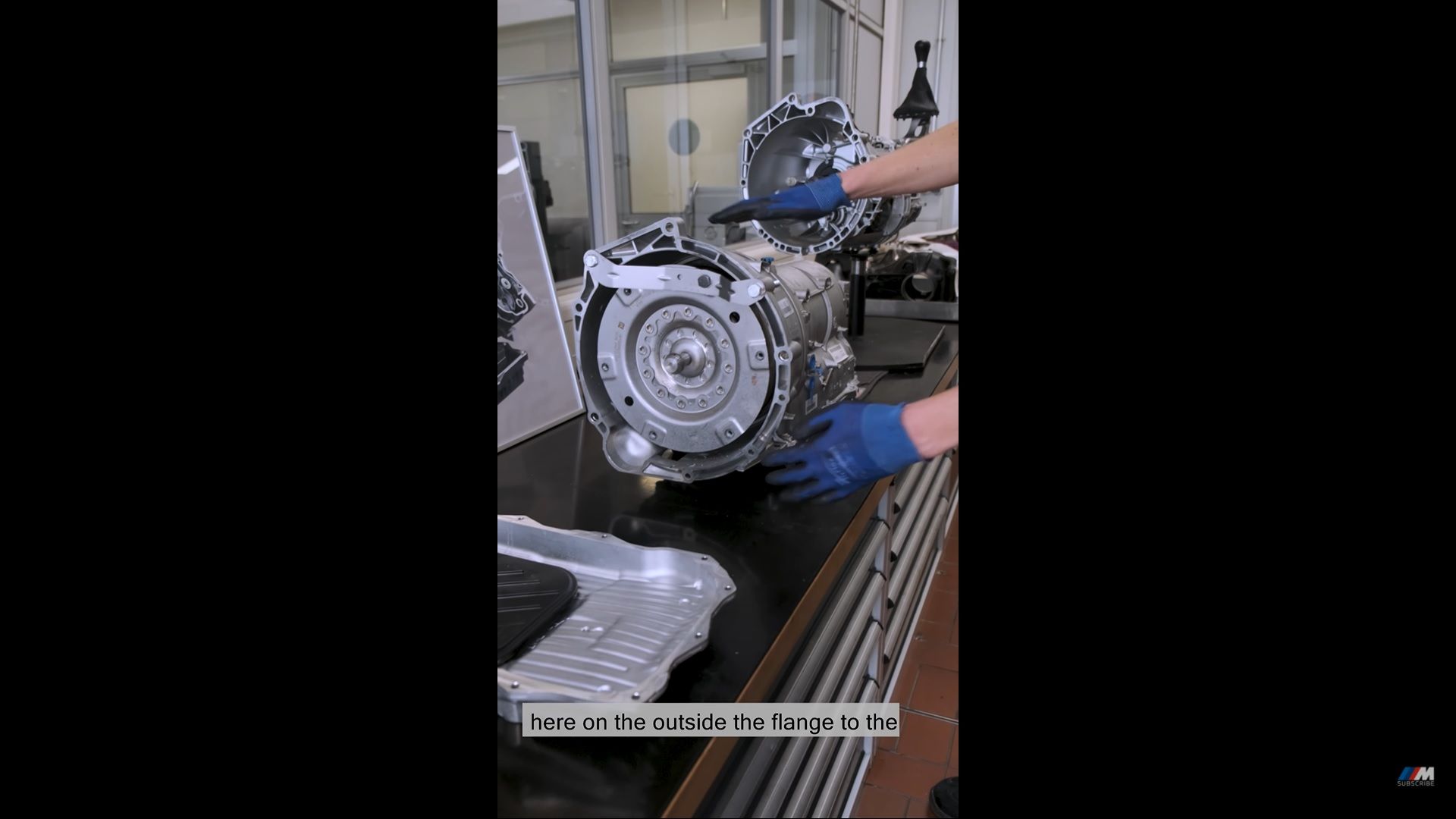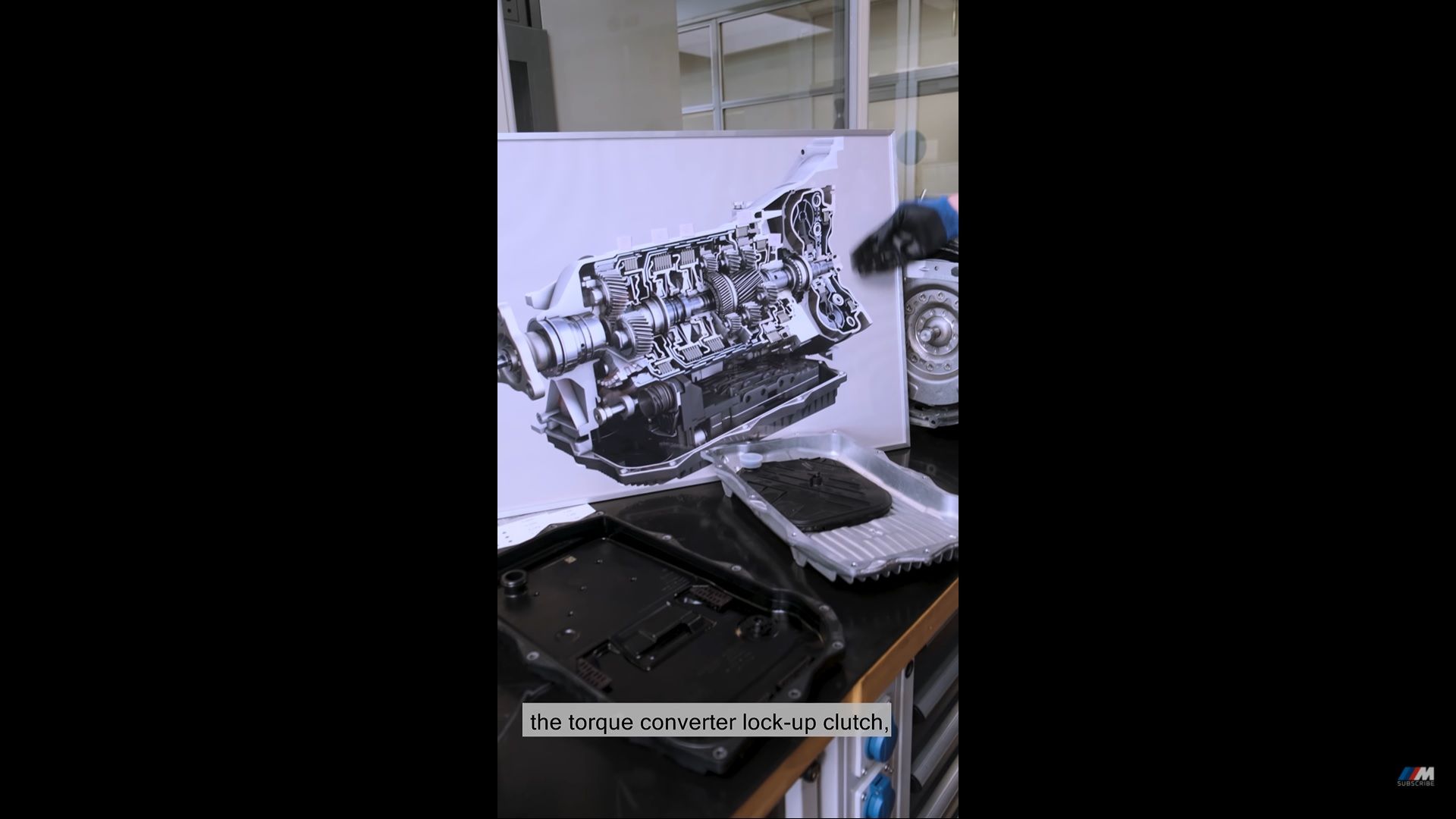BMW has decided to use the ZF eight-speed torque-converter automatic instead of the DCT unit we are used to seeing on the previous generation M-cars. In this video, Karsten – the man in charge of M GmbH transmission design – explains the reasoning behind why a modern performance car like the BMW M3 or M4 would flourish with old-school transmission technology.
Karsten compares the dual-clutch automatic with the torque converter, explaining the advantages and disadvantages of each. He immediately points out that dual-clutch automatics shift quicker than torque converters because they can also use inertia. Torque converters cannot do that.
On the other hand, torque converters have always been very smooth, especially at low speeds, making them ideal for luxury applications. It’s worth noting that modern torque converters have come a long way, compared to the old “slush o’matics” of the 1990s and early 2000s, which were sluggish, and robbed the car of performance. With so many high-performance M models, it’s easy to forget that BMW is a luxury brand. The use of a torque converter is part of their return to more luxury-oriented vehicles.
That doesn’t mean the new M3 and M4 will be less exciting, however. The M8HP76 torque converter is a very capable unit, able to shift gears in just 150 milliseconds. There are more advantages to the torque converter.
“With the torque converter transmission, through the converter lock-up clutch and the direct clutch to clutch shift, we now have, in principle, all gears pre-selected”, Karsten explains. He adds that, with the dual-clutch automatic, only one gear is pre-selected. This means that the shift to the pre-selected gear will be very quick. However, shifting to a different gear that isn’t pre-selected will not be optimal, which is why some dual-clutch units can feel clunky or inadequate in low-speed applications.
Packaging is another reason why the new M3 and M4 come with a torque converter. DCT units are essentially two gearboxes in one, which makes them bigger, heavier, and more complex. In any case, modern torque converters have come a long way, and, as Karsten explains “the gear change is pretty close to perfection both with regards to speed and comfort”.




